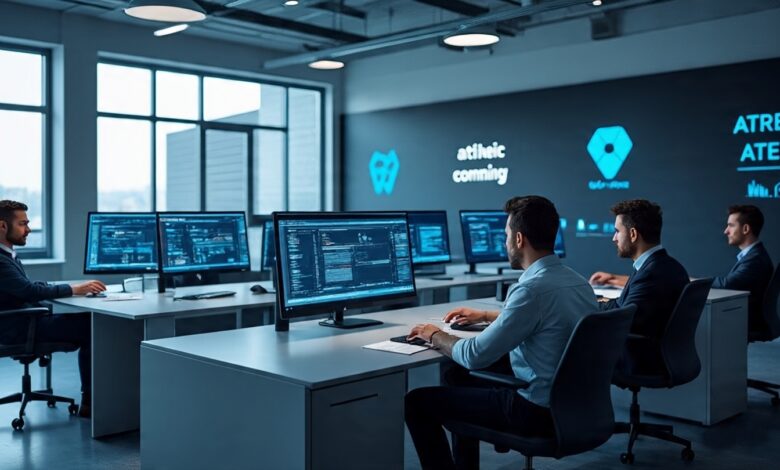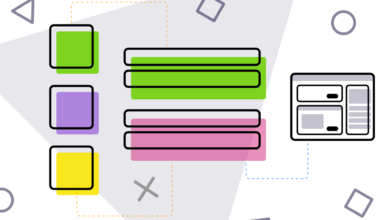Top 100 Artificial Intelligence Companies to Watch in 2025
Discover the top 100 AI companies reshaping industries in 2025. From OpenAI to emerging startups, explore leading artificial intelligence firms driving innovation.

The artificial intelligence landscape in 2025 represents the most dynamic and transformative period in tech history. With AI companies collectively raising over $170 billion in funding and thousands of new machine learning startups entering the market, the ecosystem has never been more competitive or promising.
From generative AI pioneers like OpenAI disrupting traditional workflows to enterprise AI solutions revolutionizing healthcare and finance, the top AI companies of 2025 are reshaping how we work, create, and interact with technology. The rise of large language models, computer vision, and autonomous systems has created unprecedented opportunities across every industry vertical.
This comprehensive guide examines the 100 most influential AI companies driving innovation in 2025. Whether you’re an investor seeking the next AI unicorn, a business leader exploring enterprise AI adoption, or simply curious about the future of artificial intelligence, this analysis provides essential insights into the companies and technologies that will define the next decade of AI advancement.
The Current State of the AI Industry in 2025
Market Landscape and Funding Trends
The AI industry in 2025 has reached unprecedented scale and sophistication. According to recent data from leading venture capital research, AI startups have collectively secured over $170 billion in funding, with 33 US AI companies raising $100 million or more in 2025 alone. This represents a significant acceleration from previous years, indicating massive investor confidence in artificial intelligence technologies.
Vertical AI applications are experiencing explosive growth, with specialized AI companies focusing on industry-specific solutions capturing over $1 billion in combined funding year-to-date. The healthcare AI, legal tech, and financial services sectors are leading this verticalization trend, as businesses seek AI solutions tailored to their unique challenges and regulatory requirements.
Key Technology Trends Shaping 2025
Several pivotal trends are defining the AI landscape this year:
Agentic AI systems that can perform complex, multi-step tasks autonomously are becoming mainstream. Companies like Anthropic and OpenAI are leading this evolution with sophisticated AI agents capable of reasoning, planning, and executing workflows with minimal human intervention.
Multimodal AI models combining text, images, voice, and video processing are revolutionizing user experiences. Machine learning companies are increasingly focusing on creating unified platforms that can handle diverse data types seamlessly.
Edge computing and AI hardware optimization have become critical as organizations seek to reduce latency and improve privacy by processing AI workloads locally rather than relying solely on cloud infrastructure.
Top Foundational AI Companies
OpenAI: The Generative AI Pioneer
OpenAI continues to dominate the generative AI space as the most influential AI company globally. With ChatGPT serving over 500 million weekly active users, OpenAI has transformed from a research laboratory into the world’s most valuable private artificial intelligence company. Their GPT models power countless applications across industries, while their API services enable developers worldwide to build AI-powered solutions.
The company’s ambitious pursuit of artificial general intelligence (AGI), combined with their first-mover advantage in consumer AI, positions them as the most influential pure-play AI company globally. Recent developments include advanced multimodal capabilities and improved AI safety measures that set industry standards.
Anthropic: AI Safety and Constitutional AI
Anthropic has established itself as a leading AI research company focused on building safe, beneficial, and understandable AI systems. Founded in 2021, the company has raised over $4 billion in funding, making it one of the most valuable AI startups in history.
Their flagship product, Claude, represents a breakthrough in AI safety and alignment. Unlike many AI models, Claude is designed with constitutional AI principles, making it more reliable and trustworthy for enterprise applications. Anthropic’s commitment to responsible AI development has attracted partnerships with major corporations seeking dependable AI solutions.
Google DeepMind: AI Research Powerhouse
Google DeepMind remains the AI research powerhouse through its comprehensive Gemini AI platform, which serves over 1.5 billion users monthly. Under CEO Sundar Pichai’s leadership, Google has integrated artificial intelligence across its entire ecosystem, from Workspace applications generating more than two billion monthly AI assists to advanced cloud services via Vertex AI.
The company’s breakthrough achievements in protein folding with AlphaFold, game-playing AI with AlphaGo, and large language models with Gemini demonstrate the breadth of their AI capabilities. Their deep learning research continues to push the boundaries of what’s possible in machine learning.
AI Infrastructure and Hardware Leaders
NVIDIA: The AI Computing Foundation
NVIDIA currently holds approximately 92% of the data center GPU market, positioning the company as the primary supplier for AI infrastructure development. Their H100 and newer Blackwell architecture processors are widely deployed in major AI model training operations globally.
Since transitioning from gaming graphics to enterprise AI computing in 1993, NVIDIA has become the backbone of the artificial intelligence revolution. Their specialized AI chips enable the massive computational requirements needed for training large language models and running complex machine learning algorithms at scale.
Microsoft: Enterprise AI Integration
Under Satya Nadella’s leadership, Microsoft has achieved remarkable AI business growth, with AI-related revenue exceeding $13 billion annually. The company’s $80 billion investment in AI-enabled data centers for 2025 demonstrates their commitment to AI infrastructure.
Microsoft’s integration of artificial intelligence across its entire ecosystem makes it the definitive platform for enterprise AI adoption. From productivity tools enhanced with AI capabilities to comprehensive cloud services through Azure, Microsoft is competing directly with cloud rivals Google and Amazon in the AI infrastructure space.
Amazon Web Services: Cloud AI Services
Amazon leads in AI-driven cloud and automation services, powering millions of users through consumer products like Alexa and Rufus, alongside their Nova multimodal foundation models. AWS offers an extensive range of AI services, including Bedrock, which natively hosts Amazon’s Nova models alongside over 100 other foundation models.
Recent innovations include Nova Act, an agentic AI model for autonomous browser tasks, and Nova Sonic, a voice-to-voice conversational AI system. These developments position Amazon as a comprehensive provider of AI infrastructure and services for enterprises of all sizes.
Emerging AI Unicorns and High-Growth Startups
Scale AI: Data Infrastructure for AI
Scale AI has become the go-to platform for AI data labeling and preparation, serving major companies like Toyota, Lyft, and Airbnb. Their dominant position in the AI data market makes them critical infrastructure for machine learning development.
With the increasing demand for high-quality training data, Scale AI’s services have become essential for companies developing AI models. Their platform automates the complex process of data annotation and validation, enabling faster AI development cycles.
Harvey: AI for Legal Industry
Harvey has revolutionized the legal tech industry with AI tools specifically designed for legal professionals. Having raised two $300 million funding rounds in 2025, bringing their valuation to $5 billion, Harvey demonstrates the massive potential for vertical AI applications.
Their AI assistant helps lawyers with research, document analysis, and case preparation, significantly improving efficiency in legal workflows. The company’s success illustrates how specialized AI solutions can create substantial value in traditional industries.
Cursor (Anysphere): AI-Powered Coding
Anysphere, the AI research lab behind the AI coding tool Cursor, raised a substantial $900 million Series C round, valuing the company at nearly $10 billion. This investment reflects the enormous potential of AI-assisted software development.
Cursor represents the future of programming, where artificial intelligence assists developers with code generation, debugging, and optimization. The platform demonstrates how AI tools can enhance human productivity rather than simply replacing human workers.
Vertical AI Applications by Industry
Healthcare AI Innovation
Healthcare AI represents one of the most promising applications of artificial intelligence, with companies like Tempus, PathAI, and Cleerly leading breakthrough innovations:
Tempus leverages AI and machine learning to accelerate precision medicine and clinical trial matching. Their recent acquisition of Deep 6 AI enhances their platform’s ability to match patients with appropriate clinical trials using AI algorithms.
PathAI uses computer vision and machine learning to detect diseases early through advanced pathology analysis. Their technology can identify patterns in medical imagery that might be missed by human analysis, potentially saving lives through earlier intervention.
Cleerly focuses on cardiovascular health, using artificial intelligence to analyze coronary computed tomography angiography (CCTA) scans. Their AI platform compares patient data against extensive databases to assess heart attack risk more accurately than traditional methods.
Financial Services AI
The financial services sector has embraced AI adoption at an unprecedented rate, with companies developing solutions for:
- Algorithmic trading and portfolio optimization
- Fraud detection and risk assessment
- Automated underwriting and loan processing
- Customer service automation through AI chatbots
- Regulatory compliance and reporting
AI companies serving financial markets are leveraging machine learning to process vast amounts of market data, identify patterns, and make split-second decisions that human traders cannot match.
Legal Technology AI
Beyond Harvey, the legal tech space includes numerous AI startups developing specialized solutions:
Document review and contract analysis tools powered by natural language processing Legal research assistants that can analyze case law and precedents Predictive analytics for case outcomes and settlement negotiations Compliance monitoring systems for regulatory adherence
Computer Vision and Robotics Companies
Autonomous Vehicle Leaders
Wayve has developed AI systems that use large language models to provide real-time natural language explanations of driving decisions, helping improve user confidence in autonomous vehicles.
Pony.AI focuses on building the safest and most reliable technology for autonomous vehicles, armed with the latest breakthroughs in artificial intelligence. Their mission to deliver self-driving technology at global scale represents the future of transportation.
Industrial Robotics and Automation
Physical Intelligence creates foundational AI models that empower robots to reason through complex tasks and learn directly from human feedback. Their approach represents the next generation of AI-powered robotics.
RightHand Robotics provides end-to-end solutions for e-commerce order fulfillment, demonstrating how AI and robotics can optimize supply chain operations across industries.
AI Security and Governance
Machine Learning Security
ML security has become essential as AI adoption accelerates. Companies are developing solutions to protect AI systems from vulnerabilities, attacks, and data breaches. Zama enables computation on encrypted data, allowing for privacy-preserving machine learning across industries requiring data privacy and security.
AI Observability and Monitoring
AI observability platforms monitor, measure, and assess AI model performance, reliability, and outputs. These tools provide testing, benchmarking, and continuous improvement capabilities for AI systems, ensuring they perform reliably in production environments.
International AI Leaders
European AI Innovation
Mistral AI, a French AI startup, specializes in high-performance open-weight large language models. Their approach to AI development emphasizes transparency and accessibility while maintaining competitive performance.
European AI companies are increasingly focusing on AI governance and ethical AI development, positioning the region as a leader in responsible artificial intelligence deployment.
Asian AI Powerhouses
ByteDance, the company behind TikTok, leverages advanced AI-driven recommendation algorithms that have revolutionized content discovery and personalization. Their AI capabilities extend beyond entertainment into productivity tools and enterprise software.
MiniMax, a global technology company specializing in large-scale multimodal AI models, demonstrates China’s growing influence in the AI industry. Their platform enables billions of daily interactions and generates vast amounts of content through AI models.
Investment and Funding Landscape
Venture Capital Trends
AI investment in 2025 has reached unprecedented levels, with venture capital firms increasingly specializing in artificial intelligence opportunities. Key trends include:
- Vertical AI applications receiving more funding than horizontal platforms
- Enterprise AI solutions attracting larger investment rounds
- AI infrastructure companies commanding premium valuations
- AI safety and governance becoming investment priorities
Notable Funding Rounds
Several AI companies have secured massive funding rounds in 2025:
- EliseAI raised $250 million for healthcare and housing automation
- Abridge secured $300 million for healthcare AI applications
- ElevenLabs obtained $180 million for synthetic voice technology
- Snorkel AI raised $100 million for AI data labeling
Future Outlook and Predictions
Technology Evolution
The AI industry is evolving toward more specialized and domain-specific solutions. Vertical AI applications are expected to dominate future growth as companies recognize the value of AI tools designed for specific industries and use cases.
Multimodal AI capabilities will become standard, enabling more natural and intuitive human-computer interactions. Edge computing will reduce reliance on cloud infrastructure while improving privacy and reducing latency.
Market Expansion
AI adoption across traditional industries will accelerate as AI solutions become more accessible and cost-effective. Small and medium businesses will increasingly leverage AI tools previously available only to large enterprises.
The democratization of AI development through platforms like Hugging Face will enable more organizations to build custom AI applications without extensive technical expertise.
How to Evaluate AI Companies
Key Performance Indicators
When assessing AI companies, consider these critical factors:
Revenue growth and customer acquisition rates Technology differentiation and intellectual property portfolio Market positioning within specific AI applications Partnership ecosystem and integration capabilities Regulatory compliance and AI safety measures
Investment Considerations
AI companies represent significant opportunities but also carry unique risks. Successful evaluation requires understanding both the technical capabilities and market potential of specific AI solutions.
Consider factors such as data quality, model performance, scalability, and competitive moats when evaluating AI investments.
Conclusion
The top 100 artificial intelligence companies of 2025 represent the most transformative technological force of our generation. From foundational AI research conducted by OpenAI and Anthropic to specialized vertical AI applications revolutionizing healthcare, finance, and legal services, these companies are reshaping every aspect of human activity. The unprecedented $170 billion in AI funding this year demonstrates investor confidence in artificial intelligence’s potential to create massive value across industries. As machine learning, generative AI, and autonomous systems continue evolving, the AI companies featured in this analysis will likely determine the technological landscape for decades to come. Whether you’re seeking investment opportunities, exploring AI adoption for your business, or simply understanding the future of technology, these AI leaders represent the cutting edge of human innovation and the foundation of tomorrow’s digital economy.










